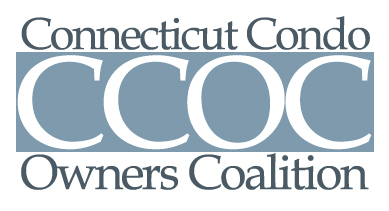Ask Atty Pat: What Are The New Laws On Using Grills In Condos?
I am receiving inquiries about a recent article in the Hartford Courant regarding changes to the Connecticut State Fire Prevention Code. The change, which became effective on May 7, 2015, bans the use and storage of charcoal and propane grills (open flame grills) on many condominium decks and balconies. The grills are prohibited from decks and balconies made of combustible material and areas within 10 feet of a building, including overhangs. Open flame smokers, chimineas and fire pits may be included. Single family homes and two unit buildings with town house units are specifically excluded.
The restriction is part of the International Fire Code. Thirty-two other states, including California and New York, have already adopted parts of the Code. The reason? Public safety. Open flames can ignite the deck on which the grill is located, the combustible structures above the grill, and the siding and trim of buildings. Grills cause thousands of fires each year and send countless people to the emergency room.
Fire marshals in some towns are not aware of the restriction, while others may not be actively enforcing the restriction. Some town of fire marshals are already giving notice to condominiums about the restriction. Individual fire marshals may have differing opinions about the interpretation of the restriction. It is best to check with your local fire marshal about whether the condominium buildings are covered.
Decks and balconies are usually part to the common elements of a condominium. The Association has the authority to pass rules limiting or controlling behavior on common elements. The condominium association can easily pass a rule that will require compliance with the code. To not pass and enforce such a rule could be negligent.
There are many reasons why condominium Associations should not ignore the restrictions. Violation of fire codes can result in fines and legal action by the fire marshal. Insurance companies can deny coverage for fires that originate because of a fire code violation. Insurance companies could even refuse to provide an insurance policy for the condominium. If a person is injured or property is damaged, the attorney for the injured party will easily argue that the Association was negligent for allowing violations of the fire code and the Association will be liable, possibly without insurance coverage.
Occupants of the condominium should be aware that the fire marshal can personally fine or sue the occupants themselves for violating the restrictions. A citation for violation carries a $250 fine. A continuing violation carries a fine of $50 per day. In addition, in some circumstances, a person who violates the State Fire Prevention Code can be fined for between two hundred dollars and one thousand dollars or be imprisoned not more than six months, or both.
Associations can provide alternatives to deck grilling by creating safe areas on the common elements for grilling. The safe area may just be any location that is ten feet from any combustible material. The safe area could be a separate common area designed just for community grilling. The Association should consider a procedure for the safe disposal of charcoal. Associations can require that all grills be electric and installed in compliance with electrical code requirements.
The storage of the individual grills will be another problem. Associations can mandate that propane tanks be removed from gas grills and allow storage of the grills. Then, the problem would be the storage of the propane tanks. The Association can provide a separate fire proof storage building for grills or propane tanks that is located far enough from the main structure. The fire proof structure would have to be designed and used in compliance with the requirements of the fire marshal and should have a label warning fire fighters.
Pat Ayars is a Glastonbury attorney who specializes in condo issues. She is a member of the Connecticut Condo Association Advisory Committee.






I take it the same applies to apartments, which I live in, as well? For I read the very same article the following Monday that it was published then received a notice on Friday of the same week from then property firm that owns it. I then immediately called them up about it, for I have a full fledged Weber grill still sitting out on my patio with the propane tank off of it and was told that they would get back to me on what to do with getting rid of both tank and grill. Since Charcoal is also part of this law, then what would be an acceptable means of grilling, how expensive is it to get a grill that uses electricity then?
The new state Fire Prevention Code actually adopts the 2012 edition of the National Fire Protection Association’s Fire Code (NFPA 1) rather than the International Fire Code.
What are the specific NFPA and CT Fire Prevention Code sections, so that we may review and/or incorporate the wording into our bylaw changes?
Take a look at section 10.11.6.1 and 10.11.6.2 of the 2012 NFPA 1 (“Cooking Equipment”). You can access the NFPA 1 as well as the state fire codes at the State Fire Marshal’s website http://www.ct.gov/dcs/cwp/view.asp?a=4489&q=530894&dcsNav=|
Your first paragraph above says: “The grills are prohibited from decks and balconies made of combustible material.”
I live in Millepointe, 33 Mill Street (behind Marshall’s) in Wethersfield. Our balconies are 100% noncombustible concrete with tile floors, concrete overhangs, insulated glass. As far as I know, gas and charcoal grills are already prohibited. Our electric grill is no different from the electric stove in the kitchen, except that it’s outdoors. Would electric grills be permitted under these circumstances?
Where does the code specify charcoal and propane? Where does it exempt the described side by side town houses? I don’t see those specific references in my reading.
What about electric smoker? Can we use that? There will no absolutely zero fire whatsoever!
You state that the ban prohibits only “open flame” grills. But the code doesn’t specify that. The code states “no hibachi, grill, or other similar devices used for cooking, heating, or any other purpose”. Some fire marshals are allowing electric grills. There is supposed to be upcoming training for the marshals. I’m concerned that clarification may be made in the training and electric grills prohibited as well. I don’t want to invest in an electric grill if these won’t be allowed in the long term. My complex allows it at the moment, but I’m concerned it may change. Can you please clarify with the State Fire Marshall?
I do not understand the ruling of open flames of grills on patios. I live in a condominium, which are constructed of brick of 3 ft. and vynil siding . these are not so likely to catch fire.
Would a gas dryer,a gas furnace, a gas cooking stove,
gas water heater, a gas fireplace have a bigger fire
potential than a grill.Will we also have to take them from our houses ? There are more houses destroyed by fire from these than grills.
While the code states side by side town houses are exempt, our association as of March 1st is using its bully tactics to ban grills. After 20 years. What I found out was they shopped around for new insurance and to SAVE MONEY they down graded our insurance which does not allow grills or so they tell me. Well they lied to the home owners telling them it was because of the law, which is not true, a law that went into effect in 2015. They failed to tell everyone that they purchased a cheaper insurance policy. So here is my issue, the board made the motion, and not open to the association/home owners to vote on the new ban. I just purchased a new grill in 2016 not cheap, so now I’m out $500, all because they want to save money. Here is a bigger issue, what else does this policy skimp on? Can’t be just grills. So I told the board they need to tell the home owners the truth… not chocolate cover this so the board can save money and buy a cheap policy. Do I tell the home owners?
Apparently, I live in an upscale condo complex free from CT laws regarding grilling. The people next / attached to me have been grilling using charcoal and lighter fluid almost every night. Although I have complained to our Association BoD, there has been nothing done to stop this situation. My unit fills up with lighter fluid stink and plenty of times smoke as well. The people pull their grill close to the unit under the over hang to try and hide their grilling. That makes the smell worse, not to mention the fire danger.
Not sure what you can do to force enforcement, maybe new hoa directors
Can we use an electric grill?
You have misstated the exemptions from the ban in your first paragraph. The state code exempts detached one- and two-family dwellings and “multiple single-family dwellings attached side-by-side (townhouse) not more than three stories in height with each dwelling having a separate means of egress.”
Can a President of an Association also hold to jobs as ours is the treasurer too. Is this right?
its up to the rules of your HOA. The state statutes are silent on this issue.
Our complex has a policy manual that states the use of common areas are at the user’s risk. Even so, can the association still be liable if someone is injured in those common areas?